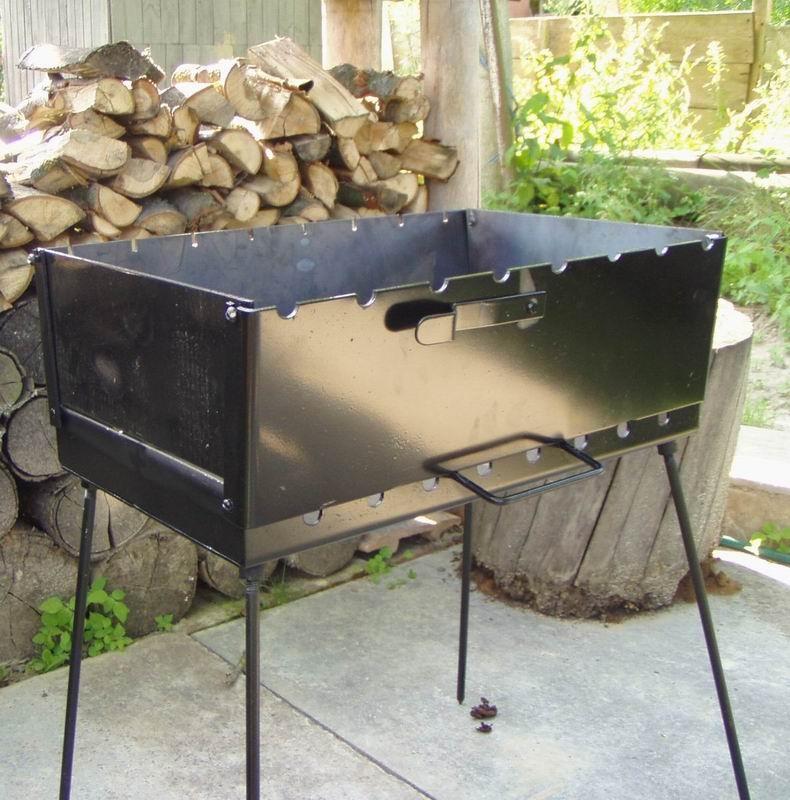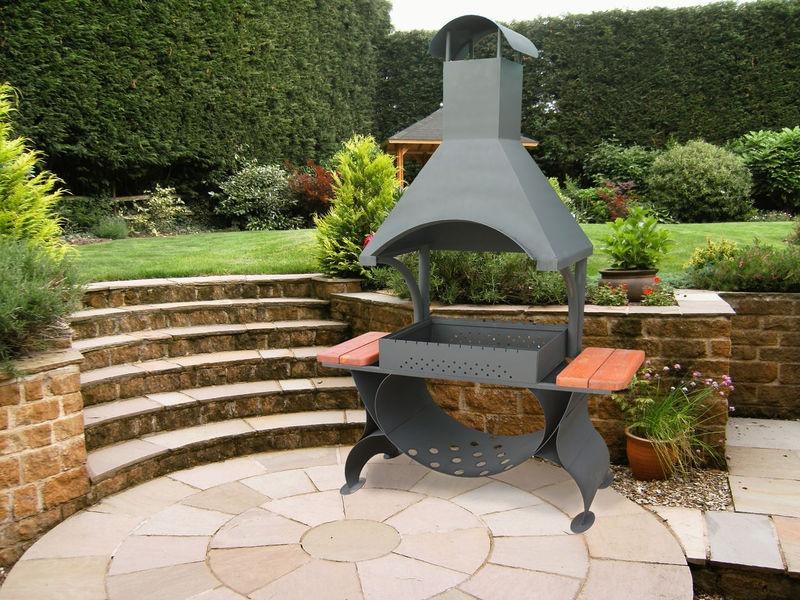An invariable attribute of a country house is a barbecue, and, more recently, barbecues. So, let’s talk about the different types and benefits of grills and barbecues and how to make them yourself.
Brick grill or barbecue
The main advantage is durability, the brick grill is built for life once. The shape and design depend on the tastes of the owners, but when the design is not only high-quality, but also beautifully executed, it can easily become one of the main decorations of your home – a kind of small architectural form, decoration.
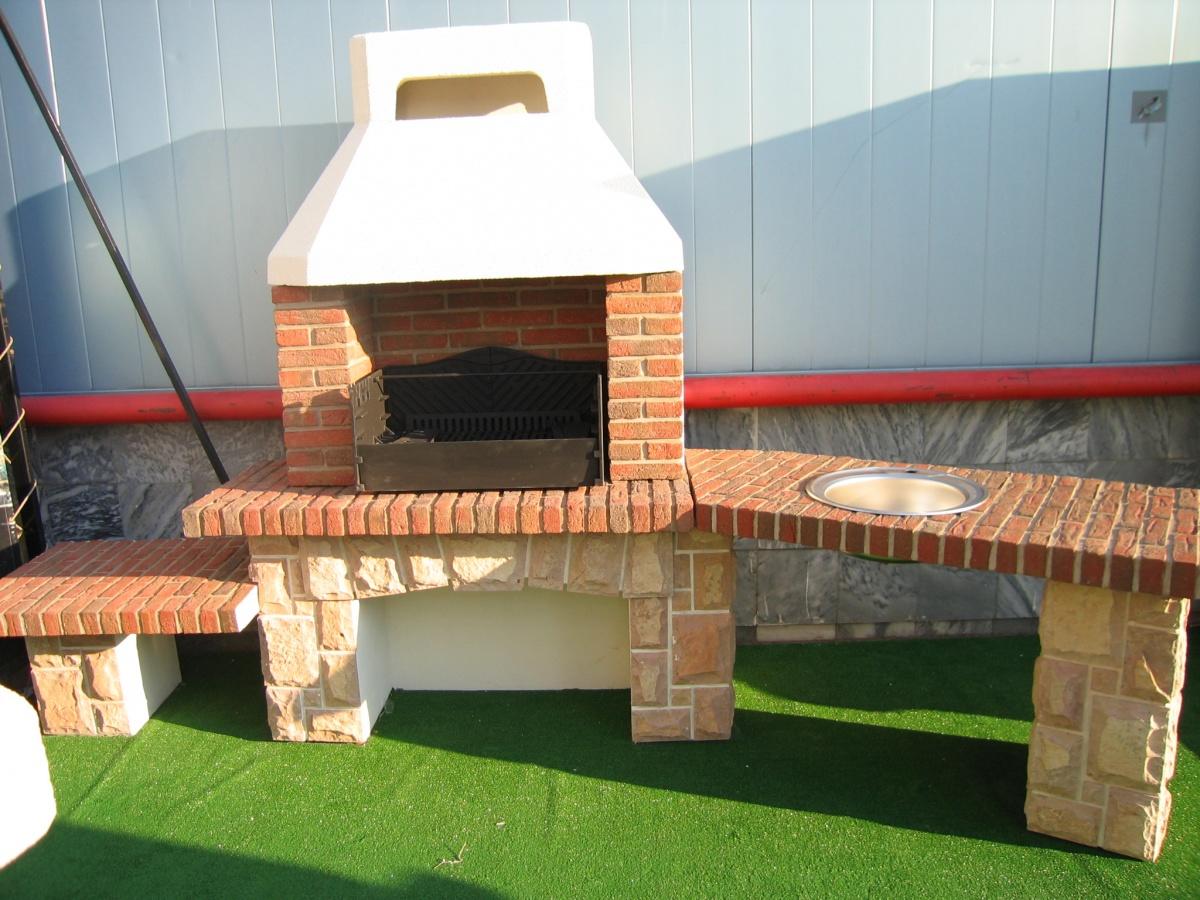
A brick grill or barbecue can be made by yourself, but preliminary preparation will be required. First of all, you need to decide on the place and size. And we will proceed from this in the process of developing the project.
It is logical to arrange the structure so that it is closer to the table and seats. But not too close to you and your guests, so you won’t be disturbed by the smoke. It is desirable that the place equipped for children, for safety reasons, is also far away, but at the same time so that your kids are in sight!
The bricks you will build from must be able to withstand temperature changes when heated and cooled. Therefore, not all types of bricks are suitable for you. Fire-resistant bricks are not suitable in this respect, as the structure will crack and collapse. Also, white and red silicate is not suitable. The best option is a red brick oven-it is not afraid of temperature changes, will not break and will last you quite a long time.
To determine the height of a grill or barbecue, you must start from your height. Stand up straight and bend your elbows so that you hold the skewers: the height of the grill is the height from the ground to your bent arms: either you will fix and rotate the skewers in your hands, or grill the meat. The functional length of the structure is a meter. This is quite enough for one time cooking ten shish kebabs. This size should fit a metal grill for cooking meat without skewers. To make structures of a meter size of 2×1. 5 m (2.2×1.6 yard), you will need about 300 pieces of bricks.
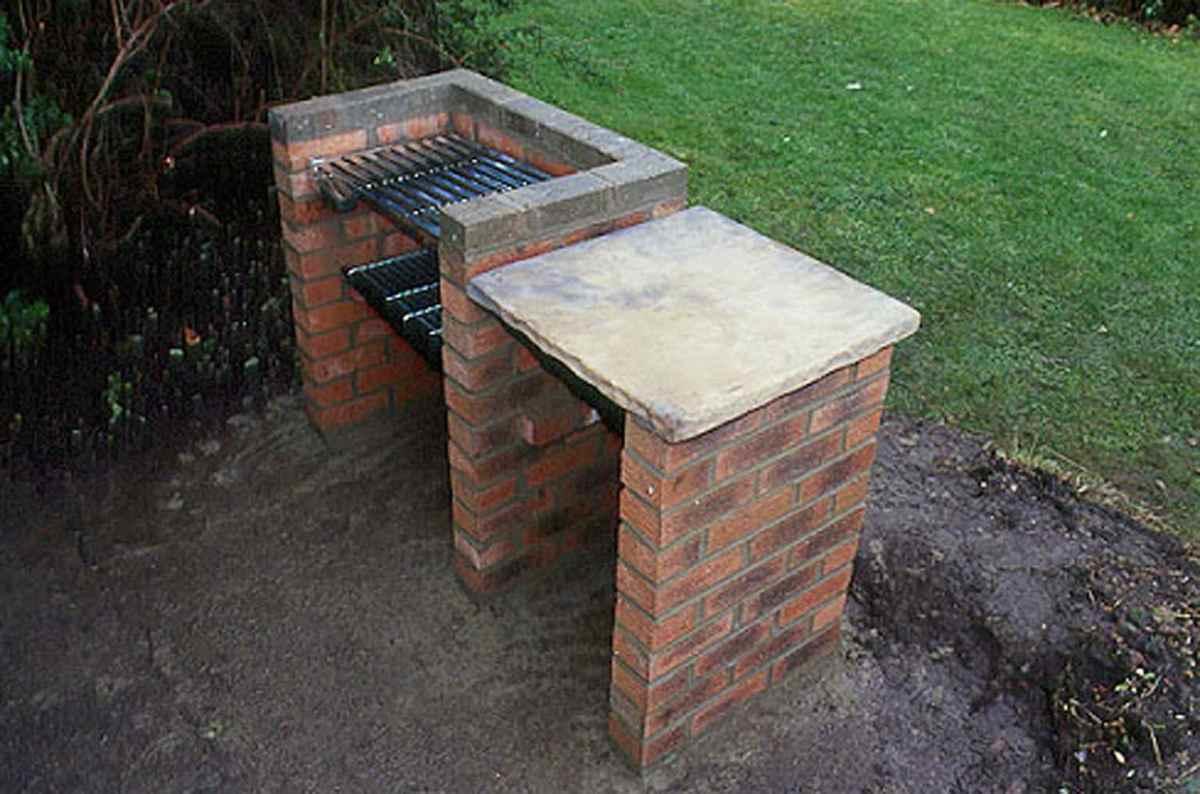
Sequence of operations:
- To prepare the foundation, you need to dig a hole with a size of 80×160 cm cm and a depth of 60 cm (2 foot).
- Fill the bottom of the pit with sand 10 cm (3.9 inch) high.
- Based on the size of the pit, make the formwork.
- Make a reinforcing mesh and then fold it folded in half.
- Pour the concrete mixture into the formwork.
- For waterproofing, pre-fold the film in six layers.
- Now you can start laying bricks.
- After completing the sixth layer of masonry, make an overlap of two layers of bricks.
- Then continue to build in three rows in height.
- And the last three rows will be just the place for cooking kebabs. If you cover the fire with a metal grill from above, then with a” flick of the wrist ” turn your grill into a barbecue. Here you will need to take care of a few small gaps that will provide an influx of air for the combustion. To improve traction, you can additionally install a pipe.
- Plaster the walls outside.
At the design stage, you can come up with more niches for storing firewood. You may want to build a roof over the entire structure. Consider all these nuances in advance.
Mobile metal grill or barbecue
These grills are convenient because they can be moved to any convenient place, in a gazebo or on the lawn-at your request. Portable grills and barbecues can be either permanent, welded structures, or collapsible, portable. When disassembled, they will not take up much space when stored indoors.
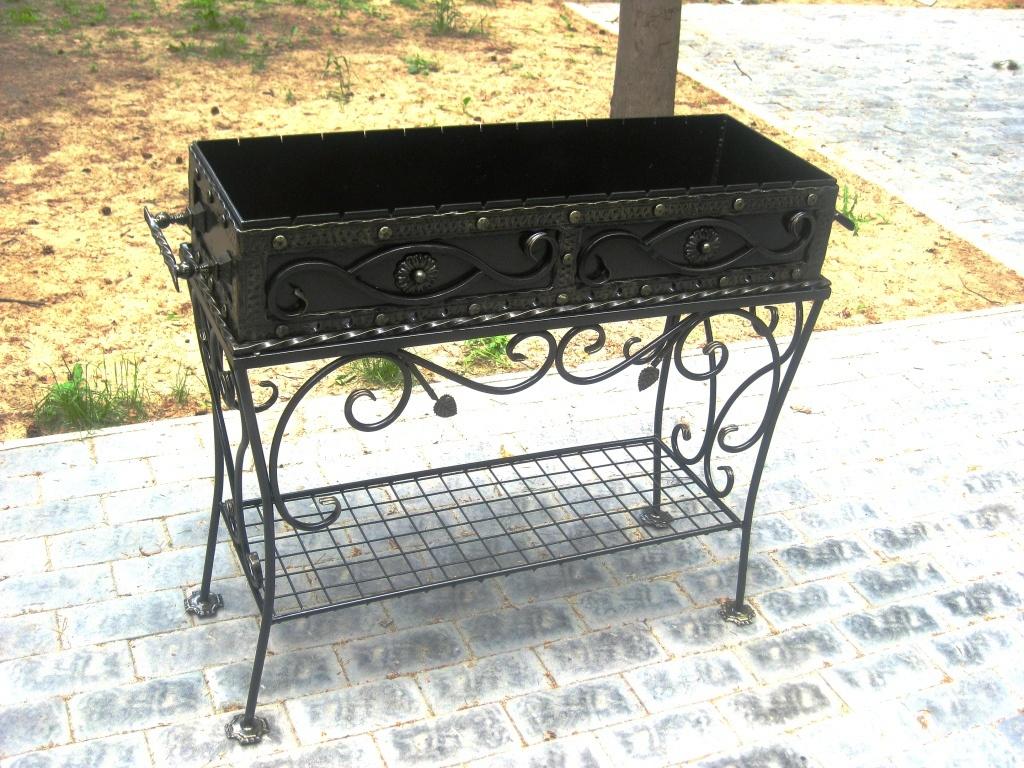
Often there are very interesting, originally made by construction craftsmen grills. If we talk about aesthetics, then an elegant decoration for your garden can be a forged construction. But there are easier ways to do this:
- A very common design is made of steel plates inserted into the base, made of curved corners. Their main drawback is that they do not withstand high temperatures, and that after a while they deform.
- Most often there are models made with their own hands using sheet materials. If it is located in a steel frame, with a shelf inserted inside for frying, then it protects the frame from warping. The frame can be made folding-tightened with screws, or solid-made by welding. It is desirable that the length of the frame is twice the width. When cutting the sheet material from the bottom, it is necessary to strictly observe the dimensional accuracy of the frame. For this purpose, it is advisable to choose a thicker metal – for a higher temperature, it is exposed from below. And the grill with a thick bottom will last much longer.
To paint the grill, choose a heat-resistant paint in an aerosol can, preferably black – this color will slightly reflect the heat from the coals.
The sequence of operations:
- Decide on the size. For a small family of 3-4 people, a design of 30×50 cm (1×1.6 foot) is enough, for a larger one, you need to calculate it based on the number of skewers, taking into account the distance between them of 10 cm (3.9 inch). If you want to transport the grill, keep in mind that it should fit in the trunk of the car.
- Choose a quality sheet material. The thickness of the steel sheet must be at least 1.5 mm (0.6 inch). The greater the thickness of the sheet, the stronger the structure will be.
- Make marks on the sheet metal and welding or grinding machine, cut off all the excess. Fold the metal along the marking at a right angle. The extreme surfaces are welded along the entire length and to the bottom. To make the legs easy to remove if necessary, it is better to fasten them on the bolts. In addition, it will save space during transportation.
- In the absence of a welding machine, it will take more time and effort to assemble the frame. When marking the side surfaces at the joints, leave a margin of 2-3 cm (0.8-1.2 inch). Fold the sheet of metal according to the marking, bending and connecting it to the other edge (drill two holes through the joint at the edges and one in the middle and fasten with bolts). On the bottom side, make slits at the edges and fold the sheet inside at a right angle. Now put the bottom on top of this structure. Thus, you will get a very strong structure that will withstand the weight of wood and coals.
- After assembly, a hole with a diameter of 2-3 cm (0.8-1.2 inch) is made in the long side walls every 4-5 cm (1.6-2 inch), retreating to a height of 3 cm (1.2 inch) from the bottom. The smaller the diameter of the holes, the more often they are made. They are needed in order to provide traction.
- Make cutouts for skewers in the upper part of the walls or install a metal grill on the structure that is suitable in size for frying on this grill.
